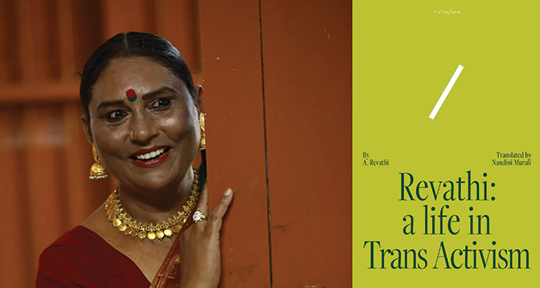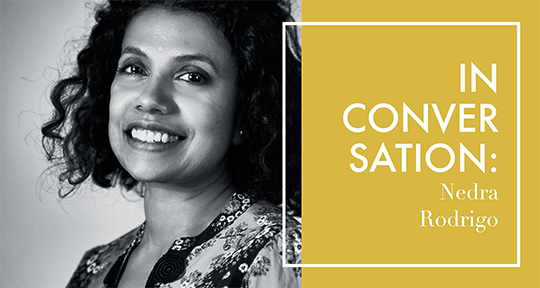Revathi: A Life in Trans Activism by A. Revathi, translated from the Tamil by Nandini Murali, Tilted Axis Press, 2024
In November 2024, Tilted Axis Press published Revathi: A Life In Trans Activism, the story of transfeminine writer, actress, and community organizer A. Revathi’s experience at the intersection of the radical hijra community and the more traditional non-governmental bureaucracy. This memoir, originally written in Tamil, spread profound awareness of the transfeminine community in India when it was released in 2011; now, it is accessible to the English-speaking audience via Nandini Murali’s translation. A. Revathi, no stranger to a less than trans-friendly political climate, first wrote this text to critique the nonprofit industrial complex—a system in which state-sanctioned institutions prop up hierarchies of power and control—and share her experiences in making her NGO more inclusive and liberatory. In the United States especially, where even explicitly gay and lesbian nonprofits are prone to neoliberalism and transphobia while centralized government can border on the fascistic, this book has never been a more necessary read.
As an organizer at the nonprofit Sangama, Revathi wasn’t expecting to feel the same sense of belonging that she did in her hijra community, a subculture of transfeminine organizers who were assigned male at birth, which had helped her realize her own gender identity. But when she worked with trans men for the first time, she discovered the kinship she felt with others across the gender spectrum. Saying that she “literally lived their lives” after conducting interviews about their needs surrounding resource access, she found herself questioning the concept of binary gender as a whole. While lamenting that she would never be seen as a participant in an idealized binary, she eventually declared that “we need to go beyond male/female distinctions and learn to look at people as humans,” a sentiment that was less than popular with the binary and even transmedicalist establishment in the nonprofit world. READ MORE…


